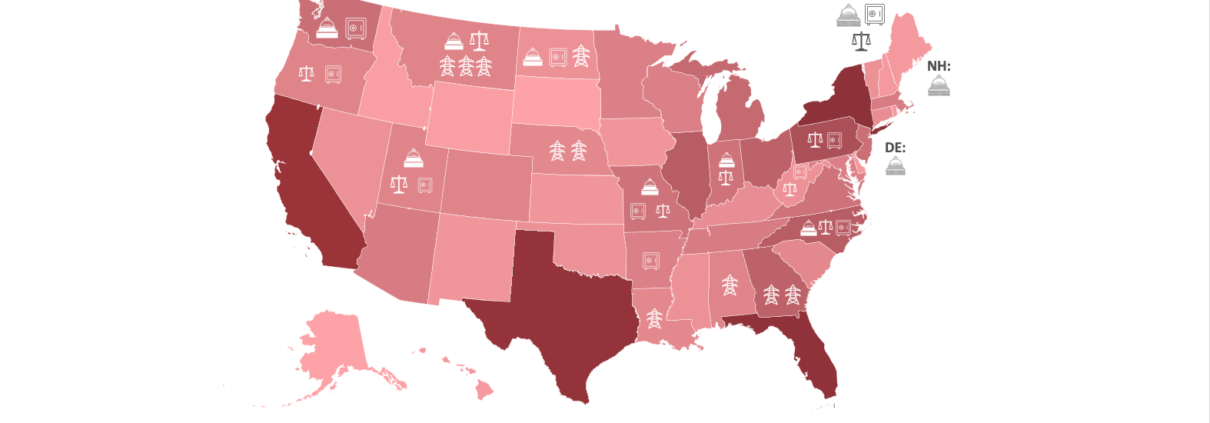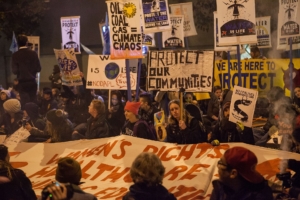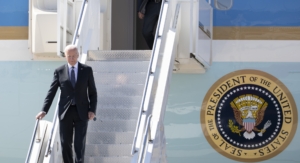Climate Is on the Ballot
This week, the energy industry is gathering in Houston, TX for its biggest annual confab, CERAWeek. Inside, executives will discuss the practical realities of delivering a lower carbon future, while outside, their efforts will be met by climate activists demanding more be done faster than either economics or physics seems to allow. A new Bain & Company survey of energy executives shows the conundrum: North America is undeniably seen as the most attractive region for investment, but the incentives to do so remain unclear and the policy uncertainty makes breaking ground on projects too difficult.
With the election season upon us, that conundrum will only grow bigger and more heated – both in the U.S. and elsewhere around the world. Indeed, while abortion, the economy, and immigration may generate more noise, it is clear climate and energy policies will be on the ballot, in some cases literally, and both those in and outside of the energy sector have a tremendous amount at stake in the outcome. Here’s what public affairs professionals need to know to ensure they are not just ahead of the debate, but can shape it.
Climate Costs Are On Voters’ Minds
Voters awaken to the cost of climate policies. Politicians in Europe have recently found themselves facing intense public backlash ahead of this spring’s European Union elections from residents who blame aggressive green climate policies for cost increases on their ways of life. In the U.K., which will hold a national election sometime this year, Energy Secretary Claire Coutinho vowed to “not repeat the kind of ‘clumsy’ climate policies which have caused social unrest elsewhere in Europe.” The rise in tension around these climate policies even led Belgian central bank chief Peter Wunsch to urge EU lawmakers “to tell the truth about the real costs of ‘greening’ the economy,” arguing voters are realizing “going green won’t make you richer.” Voters have raised similar concerns in the U.S., with Republicans arguing aggressive climate policies rob consumers of choice after America took “a green turn” under President Biden. As noted by Bloomberg, “On both sides of the Atlantic, voters are anxious about the cost of living, while green regulations are starting to affect the stuff of daily life — what cars people buy and how they heat their homes,” even as some elected officials attempt to obfuscate this reality.
Subscribe to Receive Insights
"*" indicates required fields
European politicians back off climate policies. EU policymakers that received a climate mandate in 2019 are now adjusting their policies after experiencing backlash from citizens about climate costs, including recent farmer protests against rising costs. In response, the EU has “toned down its climate policies,” even as EU climate chief Wopke Hoekstra argues “that whatever the outcome of these elections, afterward, Brussels must ‘focus just as much and probably more’ on climate action.” In the U.K., British Prime Minister Rishi Sunak “announced a series of major U-turns on climate policies” after complaints about rising costs and regulations, with his home secretary, Suella Braverman, telling “BBC that the Conservative government was ‘not going to save the planet by bankrupting British people.’” Now, President Joe Biden has found himself in a similar position having to determine how aggressive of a stance to take before the 2024 presidential election.
Dueling presidential climate policies. As voters become more aware of the costs of climate policies, Biden is walking a political tightrope to ensure his policies are not too aggressive for moderate voters but are aggressive enough to retain climate-focused voters. In January, the Biden Administration announced a pause in the LNG permitting process after environmental advocates raised concerns new LNG facilities would “lock in greenhouse gas emissions for decades.” Yet a month later environmental groups criticized Biden over his administration’s plan to ease its proposed vehicle emission requirements critics called a de facto electric vehicle mandate in what The New York Times called “ an election-year concession to labor unions.”
The policy shift didn’t stop Biden’s Republican rival Donald Trump from declaring the auto industry would face a “bloodbath” if Biden wins reelection, having previously warned Michigan voters Biden is “selling you out to the environmental extremists and the radical left.” Likewise, Trump has pledged to immediately undo Biden’s LNG pause if elected president. The differences between Biden and Trump’s environmental policies will be key in voters’ minds heading into November, but there is peril for the industry regardless of which candidate wins The White House.
This Campaign Will Define Our Energy Future – For At Least A Few Years
While the presidential race will capture industry watchers’ attention, 6,476 other federal and state elections could have an even bigger impact. This November, Americans will vote in 6,477 elections “for everything from President, Congress, Governors, and other state-level positions, plus tens of thousands of county, municipal, and special district positions.” Most of these races will go under the radar, overshadowed by the marquee races like the presidential election, yet they will shape the landscape for energy companies for years to come. These races include:
- 11 governors that will appoint 36 members of their states’ public utility commissions and otherwise shape their states’ approach to energy and climate policies and regulations;
- 10 Attorneys General who can direct energy and climate-related investigations and lawsuits, challenging federal agencies and targeting business practices alike;
- 10 State Treasurers who can shape their states’ investment practices, raising questions about ESG, divestment, and other energy and climate policies;
- 15 PUC Commissioners in 9 states that directly oversee industry practices and are quickly shifting from policy expertise to political agendas;
- Numerous state and municipal ballot initiatives that put specific energy and climate policy questions directly to the voters;
- Plus thousands of state legislators and municipal leaders who can determine permitting and siting for energy projects.
Define the Debate Before It Defines You
6,500+ elections is a lot to consider – here’s your playbook to stay ahead. As voters head to the polls across the U.S. and the globe, it is essential for companies to avoid getting caught in the ever-more polarized political crosswinds even as they shape the debate in productive ways. That’s the inherent challenge facing public affairs professionals. With the costs of climate policies becoming a major concern to consumers (aka voters), companies both in and outside of the energy industry must understand how the campaign debate is evolving, which stakeholders are trying to influence the candidates, and the implications these election outcomes could have for their interests. Identifying these risks means analyzing candidates and outside groups and seeking opportunities to shape the campaign conversation. That requires the right foundational research and an effective monitoring program that ensures you can avoid surprises, both before and after votes are cast. Think of Delve as your trusted partner in executing a battle-tested playbook that keeps you in the driver’s seat from now through the election.



